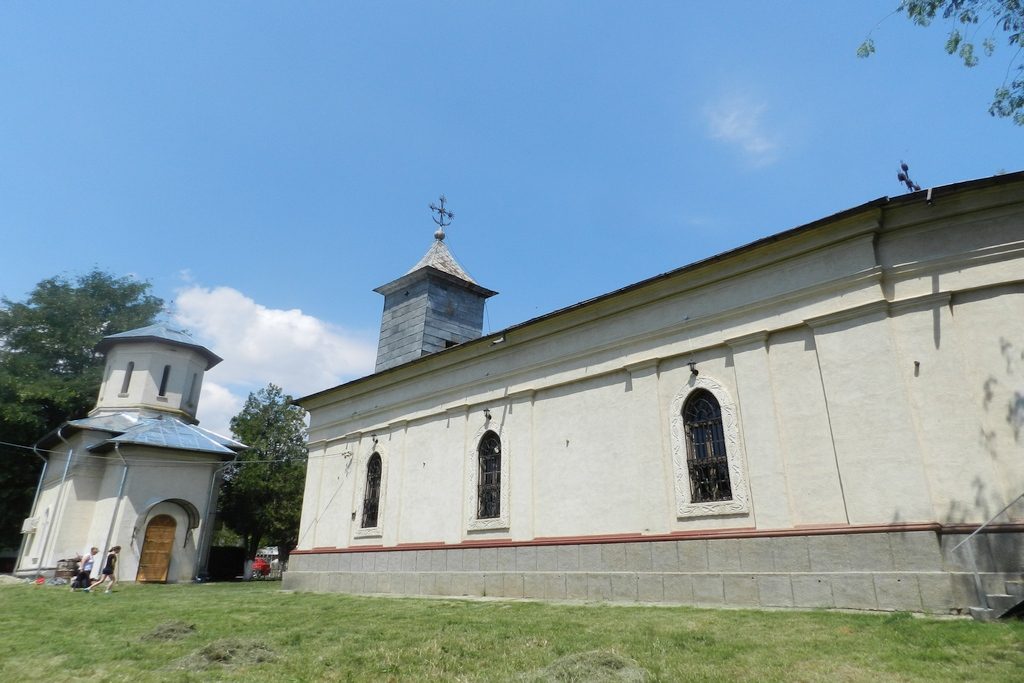

The church is built in the year 1835 by the Apostle Arsache, who, being a good entrepreneur, bought the Salinas, earning an impressive fortune on the basis of whim he builds the church which bears the titular saint of “Saint Pantelimon”.
The church was built up in the memory of his son Gheorghe who commits suicide at Vienne because of the hostility of his parents in him marrying a young Jewish woman.
The construction of the church lasted for ten years (1835 – 1845), being painted for the first time by Gheorghe the Painter, and to the end of the life of the founder in 1874 the place of worship is repainted by Gheorghe M. Tăttărascu. At the entrance in the church, on the right side, in the Narthex, there is found the painting of the founder and of his son. Arsache is pointing with his hand towards the young couple, as if he was giving them his blessing to get married. The name of Arsache is tightly connected to the double election of the prince Alexandru Ioan Cuza because he proposed the double election in both the countries and, therefore, there wasn’t breached any article from the Convention.
Of Macedo – Romanian origin, doctor Arsache was born in Hotohova in Epir in the year 1789. He comes to Bucharest before the year 1800 following the first years of school with Romanian professors. After 1805 he goes to Vienne where he studies foreign language, and after a few years he leaves in Germany where he studies medicine, where he will obtain his doctorate with the specialty “compared anatomy”. Although he was foreseen to have a university career with great chances, he doesn’t remain in Germany and comes to Bucharest.
In Romania, he functioned for a long time as a doctor at diverse hospitals, Pantelimon and Colțea at Bucharest being two of them. Around the year 1819 he buys from the Monastery Radu Vodă two properties in the county of Vlașca (today’s Giurgiu), the one from Parapani (today’s Vedea) and the one from Stănești. Entering into politics, because of his intelligence and the large knowledge which he had, he succeeded in getting known very quickly in this department also. The Romanian prince Grigore Ghica acknowledged his value, appointing him as his private secretary, who was in charge of the problems of external politics.
Through his work and because of his intellectual force, the doctor continuously grew his assets which he had in the country, as well as abroad. Doctor Arsache knew seven languages: Romanian, Latin, Greek, French, German, Italian and Turkish. He got to had spread properties in Vlașca, at Parapani, Butuneasca, Cucuruzu, Câlniște, Stănești and in many other localities. Associated with other valuable business men from that period, Apostol Arsanache held the exploitation of the Salinas from Wallachia and Moldavia. Having a blooming situation, without dissipating his assets, the doctors helped very much his subjects, permanently giving them presents.
The inhabitants from the property Parapani, also loved him and appreciated him and decided that the locality Parapani to bear the name of Arsache. Name which the commune had until the communists arrived at the power and changed it, without any motivation, into Vedea, a name without any kind of connection with the tradition of these places. He built a new city hall, a new school, facilities which are used until present.
